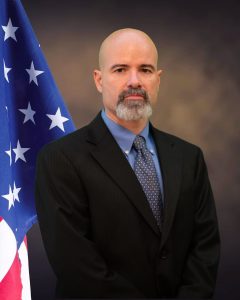Parental Alienation Syndrome: A Grounded Brief by Dr. Christian Nanry
Parental Alienation Syndrome (PAS) now more commonly known as Parental Alienation, is an often misunderstood and overlooked subject for parents and nonparents. PAS originated as “a term coined in the 1980s by child psychiatrist Dr. Richard A. Gardner, occurs when one parent attempts to turn the couple’s children against the other parent.” Later, in its evolution, the word syndrome was removed by the medical community and is no longer a part of the DSM-5 (Diagnostic and Statistical Manual of Mental Disorders). The American Psychological Association or the World Health Organization has not recognized Parental Alienation. Many journalists and scientists have vehemently criticized it as a reputable form of treatment or its admissibility in court proceedings. Parental Alienation can also be designed to enter the court system for custodial posturing.
Dr. Gardner graduated from Columbia University and the SUNY Downstate University Medical Center. He was a psychologist known for his work with children and child custody cases. Despite numerous publications, the scientific community challenged Dr. Gardner’s assumptions and findings. Doctors and researchers have worked independently of his originating work to validate Parent Alienation’s existence. Authors for the American Bar Association have published works on Parental Alienation and its impact on the legal system. The published literature takes the position that Parental Alienation is not a recent phenomenon but one that manifests historically. Indoctrination is amongst the terminology being used in place of Parental Alienation.
Depending on the jurisdiction will determine the depth of Parental Alienation in the family court system. Traditionally, in Parental Alienation situations, court proceedings and rearing can alienate one parent unintentionally. This situation is presented linearly, binding one parent in court motions and petitions. The courts often follow pre-existing procedures utilizing court experts in child protection services and attorney’s ad litem. Certain external programs that use the concept of Parental Alienation for treatment can be directed or recommended by the court. To this end, some parents can feel powerless by this rudimentary process.
Parents caught in a Parental Alienation relationship need to be aware of preventative, in-action, and educational measures. No one wants to talk about these situations, and we all hope life does not lead us down these paths. But it does happen. Awareness of what Parental Alienation is and what it can invite is both responsible and appropriate. Here are some measures which can be taken if Parental Alienation is occurring.
If you have the unenviable position of being engaged in a custody battle and think you are experiencing alienation, remain calm and grounded. Hire a quality attorney as soon as possible. Conduct a background check on the attorney to avoid unwanted relationships with anyone involved in your proceedings. Ensure you spend and continue to spend time with your child. Avoid making overt statements concerning the family relationship or dynamics. Maintain neutrality. Seek approved therapeutic interventions. Document everything. Keep a journal or a log of occurrences, meetings, and court activity. If the court asks about specific individuals representing a child in the proceedings, endeavor to evaluate the selection for any biases. A private investigator with a valued resume and reputation is invaluable. Educate yourself on the local laws and procedures of the court system. Do not hesitate to ask for transcripts and other court documents to assist you in future litigation. If civil rights violations are occurring, consult with your attorney. You may need to contact the next higher-level court in the legal system. Be organized and calm. Become informed of all the processes you may face and ask for clarification. Presentation is also important. Many family court cases are highly emotional, and presenting your side calmly and collectively can ease the burden of information.
Parental Alienation is controversial in research and practice. Courts are burdened with difficulties in decision-making concerning the welfare of children and the family unit. Parents should ensure they come from an informed position in instances of Alienation, and seek the proper mechanisms to minimize adverse effects and navigate the legal system.
This article is a culmination of open-sourced research and personal narratives from parents who have experienced Alienation. This is not legal advice; you should seek consulting from a licensed professional. ❦
References
American Psychological Association. (2018). Statement of parental alienation syndrome. Press Releases. https://www.apa.org/news/press/releases/2008/01/pas-syndrome
Bernet, W. Koszyk, P. (2020, March 12). Treatment and prevention of parental Alienation. https://www.psychiatrictimes.com/view/treatment-and-prevention-parental-alienation
Bloctcky, A. D. (2022, June 2). Overcoming parental Alienation. https://www.psychiatrictimes.com/view/overcoming-parental-alienation
Eddy, B. (2023, June 20). Principals for treating parental Alienation and estrangement: If a child resists contact with a parent in divorce, what’s the best treatment? Parental Alienation. https://www.psychologytoday.com/us/blog/5-types-of-people-who-can-ruin-your-life/202306/principles-for-treating-parental-alienation
Griffiths Law, P.C. (2023, March 22). Parental Alienation: What is it, and how do you fight back? Family Law. https://www.griffithslawpc.com/blog-articles/parental-alienation/
Healthline. (2019, December 5). What is parental alienation syndrome? https://www.healthline.com/health/childrens-health/parental-alienation-syndrome
Heitler, S. (2018, September 1). Parental Alienation Syndrome: What is it, and who does it? Resolution-Not-Conflict. https://www.psychologytoday.com/us/blog/resolution-not-conflict/201802/parental-alienation-syndrome-what-is-it-and-who-does-it
Heitler, S. (2018, February 27). Parental Alienation: What can an alienation do? Resolution-Not-Conflict. https://www.psychologytoday.com/us/blog/resolution-not-conflict/201802/parental-alienation-what-can-an-alienated-parent-do
Joshi, A. (2021 April 19). Parental Alienation is real. Family Law. https://www.americanbar.org/groups/litigation/publications/litigation_journal/2020-21/spring/parental-alienation-is-real/
Regele Law, LLC. (2023, February 21). Parental Alienation: What it is and how to avoid it. Child Custody. https://www.regelelaw.com/blog/avoiding-parental-alienation-in-oregon/
 About the Author
About the Author
Dr. Christian A. Nanry is a law enforcement professional and military veteran since 1996. He has exercised concurrent legal jurisdictions in multiple states, military installations, and federal statutes. Dr. Nanry began his career in the United States Army with the Military Police Corps, and worked as a Special Reaction Team member and a Military Working Dog handler in the Republic of South Korea and several stateside assignments. Dr. Nanry was the 1998 Military District of Washington Soldier of the Year, a distinguished graduate of the 2000 Primary Leadership Development Course, and the overall winner of the 2000 ROK Military Working Dog Handlers Competition in Narcotics Detection.
Dr. Nanry joined the United States Marshals Service in late 2001 and was assigned to four locations across the United States. He has successfully conducted fugitive apprehensions, threat and breach investigations, international extraditions, and protected members of the federal judiciary. His protective experiences include the United States General Assembly, the Deputy Attorney General, and several Supreme Court Justices initiated from the Draft Leak. He was the lead agent for events such as Operation Rolling Thunder in Albany, NY and multiple high threat trials in New York City. Dr. Nanry completed numerous sensitive special assignments across the United States and overseas. His individual accomplishments have been officially recognized by former Attorney Generals and Directors of the United States Marshals Service.
Dr. Nanry served as a member of multiple committees and working groups in the United States Marshals Service with the responsibility of creating policy, procedures, and alternatives for regulatory and operational necessity. These committees and groups consisted of Information Technology, Biometrics, and the Financial Management Working group. Dr. Nanry was also selected as a peer reviewer for specific national initiatives. He has been a guest instructor at the Federal Law Enforcement Training Center in Brunswick, GA and as a member of a divisional training cadre.
Currently, Dr. Nanry is a Special Agent with the Army Criminal Investigation Division investigating financial crimes in Major Procurement Fraud.
Dr. Nanry has also been a guest speaker at the 2022 Texas Cyber Summit in Austin, TX and presented research at the 2021 American Health Professionals Associations Conference and Expo in Denver, Co. His research and publications consist of education and law enforcement performance, human trafficking, sextortion, and crimes against children.
Dr. Nanry has a bachelorette of history from Empire State College, a masters in human resources; training and development from Seton Hall, and holds a doctorate of philosophy from Texas State University in adult education.
